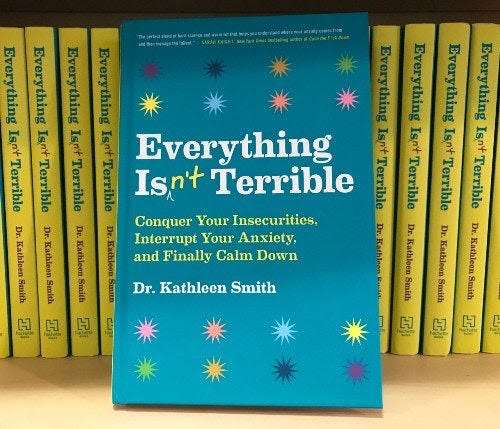50 Questions to Help You Grow Up

People often come to therapy for answers. But answers have very little to do with growing up. Answers are often attempts to direct or control others. They’re more about relieving the anxiety of the moment than teaching one’s self how to navigate challenges.
I find that questions are more useful than answers when working on my own maturity. Questions engage the front of the brain, the part that can set goals and solve problems. Questions breed curiosity, and curiosity is an antidote to anxiety. It’s very hard to change what you’re not curious about.
But when you’re anxious, it can be hard to generate questions to guide you in relationships, work, and the larger world. So I’m giving you 50 examples of questions that I’ve asked myself and/or my clients about their functioning. These questions are not meant to be a quiz. Instead, I suggest you use them to spur your own thinking and develop your own questions for measuring maturity.
Relationships/Marriage
What skills/tasks have I never bothered to learn because my spouse always completes them?
How well can I share my thinking about high-anxiety topics like sex, money, religion, politics, etc.?
How well can I manage my own anxiety when my partner becomes distressed?
Am I able to listen to my partner talk about their challenges without overfunctioning for them?
How much do I rely on my partner to manage my own distress?
Parenting
What parenting strategies/techniques have I borrowed from others without using my own thinking?
Do I have guiding principles that describe how I want to function as a parent?
How well do I keep the focus on managing myself instead of my child?
How well can I access my own thinking when my child is in distress?
Do I give my partner the space to develop their own thinking about how they want to parent?
Family Relationships
How much of my authentic self do I share with my family?
How much energy do I spend trying to control or direct family members?
Do I treat every family member like they are capable of navigating challenges?
When do I rely on gossip to gather information rather than connecting with an individual family member?
Do I make a plan for managing myself when I am about to visit family?
Dating
Am I able to stay focused on being myself, instead of getting people to like me?
Am I honest about what I want and what I believe, even when a date might be disappointed?
Am I able to successfully manage how/how often I use dating apps?
Do I try to access my own thinking before asking friends for advice?
How well can I manage my distress when a person doesn’t text or call back?
Work
Have I created and maintained my own definition of what good work looks like?
Am I able to stay thoughtful when anxiety is high at work?
Am I honest with myself and others about deadlines, my capabilities, etc.?
Do I have a one-to-one relationship with everyone I work with?
How do I overfunction for others when I become distressed?
Beliefs and Principles
How honest can I be about my thinking, when I sense people may disagree?
What beliefs about the world, religion, etc. have I adopted without using my own reasoning?
How do I respond when I encounter information that challenges my beliefs?
How do I respond when I encounter people who do not share my beliefs?
When do I abandon beliefs or principles because of relationship pressure?
Technology Use
Am I able to engage thoughtfully with my phone, the Internet, etc.?
When do I rely on my phone to manage my distress or boost self-esteem?
When do I borrow beliefs from the Internet without using my own thinking?
When and how do I try to overfunction for others on the Internet?
Have I developed clear guiding principles for how I want to use social media?
Physical Health/Appearance
Do I have a clear definition of good physical health for my age?
Do I rely on medical professionals or others to motivate me to care for myself?
How do I borrow unrealistic or unhelpful definitions of health, beauty, etc. from the larger culture?
Am I able to think flexibly and pivot when one approach to healthy living doesn’t seem to work for me?
Mental Health
Do I have a clear definition of what good mental health looks like for me?
Have I developed and maintained practices that help me take responsibility for anxiety?
When do I rely on “expert advice” or mental health trends before engaging my own thinking about how to help myself?
Am I able to think about my “unhealthy habits” and problem solve without shaming myself?
Financial Health
Do I have a clear definition of good financial health?
Are there ways I’d like to be more responsible with how I manage money?
How much energy do I spend blaming others for my financial status?
Am I able to discuss financial issues with others even when I might feel embarrassed or anxious?
Final Thoughts
What is my own personal definition of maturity?
What questions would I like to keep asking myself as I work on growing up?
How would I like to use these questions in my daily life?
What questions have proven useful for you as you work on growing up? I’d love to hear from you if you’d like to share your thinking.
News from Kathleen
The Chinese translation of my book, Everything Isn’t Terrible, dropped on October 5th. Check out the adorable cover!

Want me to speak to your group? I’ve been doing a lot of presentations on managing anxiety during the pandemic. Contact me for presentation options.
Buy my book Everything Isn't Terrible from Amazon, Barnes and Noble, Indiebound, or anywhere you buy books!

Get a free Anxiety Journal - Calming Down & Growing Up: A 30 Day Anxiety Journal includes thirty daily prompts to help you reflect on and respond to your anxious behaviors. To receive a copy, submit a copy of your receipt for my book at the Hachette page. Or you can email me.
Check out my website for past newsletters about anxiety and relationships. Follow me on Twitter, Facebook, or Instagram, or email me if you have questions about my therapy practice in Washington, DC. Visit the Bowen Center’s website to learn more about Bowen theory, as well their conferences and training programs.



